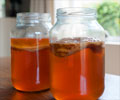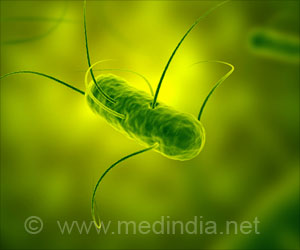Indian-origin scientist has discovered a dead probiotic that can decrease age-related leaky gut and control harmful, aging-related inflammation.

‘Leaky gut, in which microbes and bacteria in the gut leak into the blood stream through holes or cracks in the intestinal lining, causes an increase in low-grade inflammation, and these conditions are common in older people.
’
Read More..




"We know that probiotics are instrumental in maintaining a healthy gut and preventing leakage, but there isn't much data available to pinpoint which ones work and which ones don't," said Hariom Yadav, assistant professor of molecular biology at Wake Forest School of Medicine and principal investigator of the study published in the journal GeroScience. Read More..
In the study, Yadav's team first screened eight strains of human-origin probiotics in roundworms, a commonly used model with a short lifespan of 11 to 20 days.
They discovered that a strain of Lactobacillus paracasei (D3-5), even in the non-viable or heat-killed form, extended the roundworms' life span.
They then tested their initial findings in mice. The results showed that feeding heat-killed D3-5 to older mice prevented high fat diet-induced metabolic dysfunctions, decreased leaky gut and inflammation, and improved physical and cognitive functions.
"Not only did we determine which probiotic strain was the most effective in preventing leaky gut and inflammation, but we also showed that the dead version of that probiotic had the same benefits," Yadav said.
Advertisement
"We think our findings could be very useful to the food and supplement industries because dead probiotics have the potential to be more stable and have a longer shelf life than live probiotics."
Advertisement
Source-IANS














